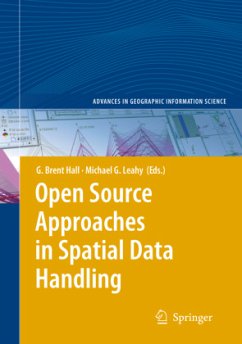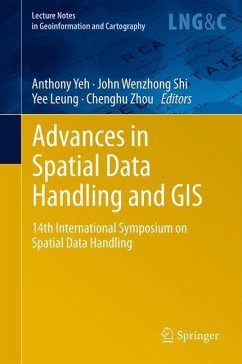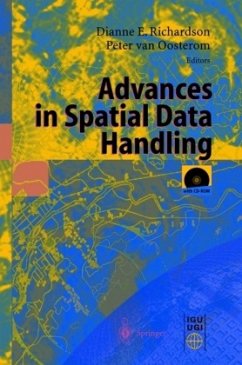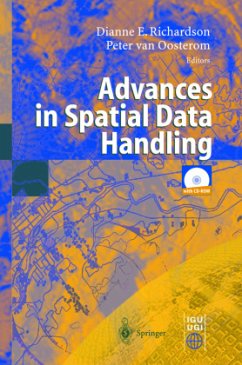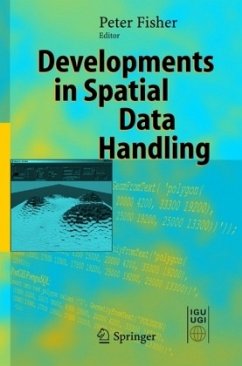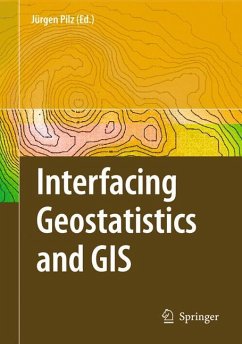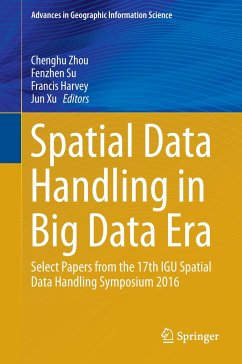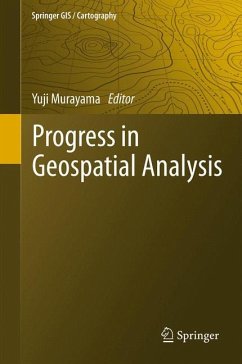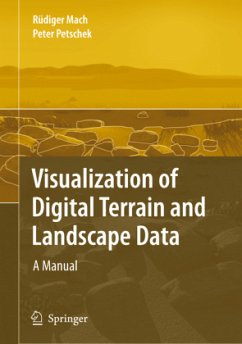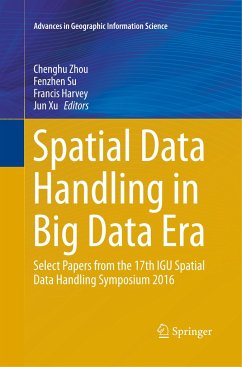
Progress in Spatial Data Handling
Status Quo and Progress
Herausgegeben: Kainz, Wolfgang; Riedl, Andreas; Elmes, Gregory

PAYBACK Punkte
76 °P sammeln!
Since the first symposium in 1984 the International Symposia on Spatial Data Handling (SDH) has become a major resource for recent advances in GIS research. The International Symposium on Spatial Data Handling is regarded as a premier international research forum for GIS. All papers are fully reviewed by an international program committee composed of experts in the field.




